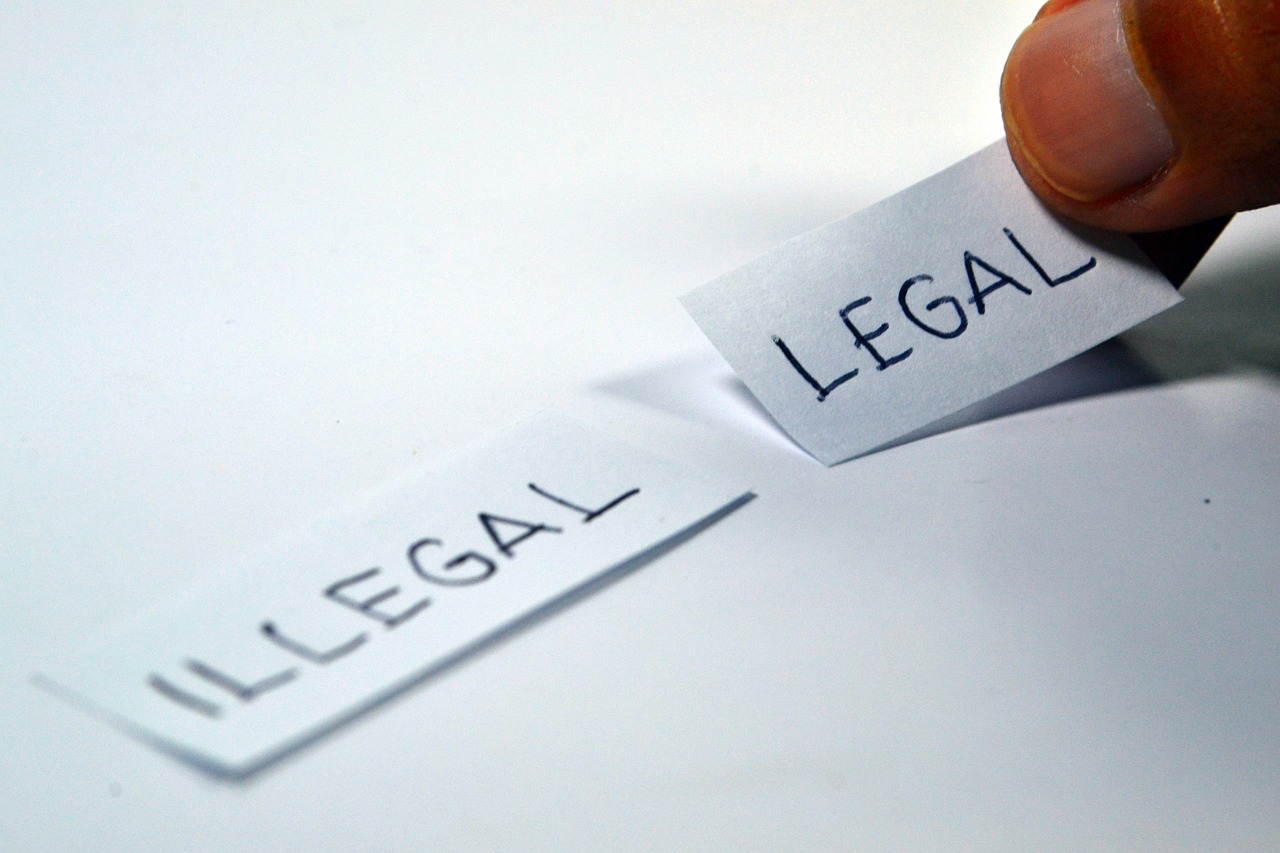Have you ever found yourself in a situation where you needed to modify a contract? Maybe there were some unforeseen circumstances that required adjustments to be made. Well, fret not, because in this article, we will be discussing contract amendments and how they can provide a solution to your legal concerns. By delving into the details of contract amendments, we aim to provide you with reassurance and guidance, ensuring that you make the necessary changes promptly and effectively. So, if you’re looking for answers to your contract modification queries, you’re in the right place. Keep reading to learn more about contract amendments and how they can benefit you.
What is a Contract Amendment?
A contract amendment, also known as a contract modification or addendum, is a legal document that makes changes or additions to an existing contract. It is used when the parties involved in the original contract need to modify certain terms or conditions. The purpose of a contract amendment is to ensure that the contract accurately reflects the intentions and agreements of the parties involved, even after changes have been made.
Definition of a contract amendment
A contract amendment is a written agreement that alters the terms of an existing contract. It is a legally binding document that must be signed by all parties involved in the original contract. A contract amendment allows the parties to make changes to the contract without the need to create an entirely new agreement.
When is a contract amendment necessary?
A contract amendment becomes necessary when the parties involved in a contract need to change or add clauses, terms, or conditions to the original agreement. This can occur for various reasons, such as unforeseen circumstances, changes in business needs, or the desire to clarify certain provisions. Rather than drafting a completely new contract, a contract amendment offers a more efficient and cost-effective way to modify the original agreement.
Who can initiate a contract amendment?
Any party involved in the original contract can initiate a contract amendment. Typically, one party proposes the changes or additions, and the other party reviews and approves them. It is important to note that all parties involved must mutually agree to the amendment for it to be valid. Therefore, open and effective communication is essential in the amendment process to ensure that all parties are on the same page.
Key Elements and Considerations
When drafting a contract amendment, there are several key elements and considerations that should be taken into account. These elements help ensure that the amendment accurately reflects the desired changes and is enforceable under law.
Identifying parties involved
The contract amendment should clearly identify all parties involved, including their legal names and any relevant contact information. This helps avoid confusion and ensures that the amendment is properly executed by the correct individuals or entities.
Purpose of the amendment
The purpose of the contract amendment should be clearly stated. This helps the parties understand why the changes are being made and establishes the objectives of the amendment. Whether it is to address unforeseen circumstances, adjust payment terms, or modify the scope of work, clearly defining the purpose helps guide the drafting process.
Description of the changes
A thorough description of the proposed changes is vital to ensure all parties understand the modifications being made. This includes specifying which clauses or sections of the original contract are being amended and providing detailed explanations of the new provisions. Clarity and specificity in the description help prevent misunderstandings or disputes later on.
Timeline and effective date
A contract amendment should state the timeline and effective date of the changes. This provides a clear understanding of when the amended terms come into effect and helps the parties manage any necessary actions or obligations related to the changes.
Legal implications and enforcement
When making amendments to a contract, it is crucial to consider the legal implications and enforceability of the changes. The amendment should be consistent with applicable laws and regulations and should not infringe upon the rights of any party. Consulting legal professionals can help ensure that the proposed amendments are legally valid and enforceable.
Potential risks and consequences
It is important to assess potential risks and consequences of the contract amendments. While the changes may be intended to benefit both parties, it is possible that they could have unintended negative effects. By carefully considering and addressing potential risks from the outset, parties can avoid potential disputes or problems in the future.

Drafting a Contract Amendment
When drafting a contract amendment, it is crucial to carefully review the original contract, identify necessary changes, use clear and concise language, and follow proper formatting and structuring.
Reviewing the original contract
Before drafting a contract amendment, it is essential to thoroughly review the original contract. This helps identify the sections or clauses that need to be amended and ensures that the proposed changes align with the overall agreement. Understanding the existing contract is crucial in order to make meaningful and effective amendments.
Identifying necessary changes
Once the original contract has been reviewed, it is important to identify the specific changes that need to be made. This may involve adding, deleting, or modifying certain provisions. Clearly identifying and documenting the necessary changes helps ensure that the amendment accurately reflects the desired modifications.
Clear and concise language
When drafting a contract amendment, it is important to use clear and concise language to clearly convey the changes being made. Ambiguous or confusing language can lead to misunderstandings or disputes in the future. It is advisable to consult legal professionals or contract specialists to ensure that the language used is legally sound and easily understood by all parties involved.
Formatting and structuring the amendment
A contract amendment should follow a consistent formatting and structuring approach to ensure clarity and readability. This may include using headings, sections, and numbering to organize the content. Additionally, using legalese or contract-specific terminology may be necessary to maintain consistency with the original contract and adhere to legal requirements.
Obtaining Consent and Signatures
Obtaining consent and signatures from all parties involved is a crucial step in finalizing a contract amendment. This ensures that all parties are aware of and agree to the proposed changes.
Notifying all parties involved
Once the contract amendment is drafted, it is important to notify all parties involved of the proposed changes. This can be done through formal written communication, such as letters or emails, clearly explaining the purpose and content of the amendment. Open and transparent communication helps ensure that all parties have an opportunity to review and provide feedback on the proposed changes.
Negotiating terms and conditions
In some cases, negotiations may be required to reach a mutual agreement on the contract amendment. This involves discussing and potentially compromising on certain terms or conditions. It is important to approach negotiations with an open mind and a willingness to find common ground that benefits all parties involved.
Obtaining written consent
In order for a contract amendment to be legally valid, written consent from all parties involved is typically required. Each party should sign the contract amendment to indicate their agreement with the proposed changes. It is important to keep copies of the signed amendment for future reference and to ensure that all parties have a record of their consent.
Executing the amendment
Once all parties have provided written consent and signed the contract amendment, it can be executed. This involves exchanging copies of the signed amendment and ensuring that each party has a fully executed version. It is advisable to consult legal professionals or contract specialists to ensure that the execution process adheres to applicable laws and regulations.
Legal Validity and Enforceability
Ensuring the legal validity and enforceability of a contract amendment is essential to its effectiveness. There are several key considerations to keep in mind when assessing the legal implications of an amendment.
Ensuring legal enforceability
To ensure that a contract amendment is legally enforceable, it is important to adhere to applicable laws, regulations, and contractual obligations. This includes complying with any specific requirements outlined in the original contract or relevant statutes.
Meeting the requirements of contract law
A contract amendment must meet the basic requirements of contract law to be considered legally binding. These requirements include mutual assent, consideration, and an offer and acceptance. Therefore, it is crucial to ensure that all parties have willingly consented to the amendment and that there is a valid exchange of value (consideration) between the parties.
Consideration and mutual assent
Consideration refers to the exchange of something of value between the parties, such as money, goods, or services. When making amendments to a contract, it is important to ensure that there is valid consideration given by both parties. Additionally, mutual assent, or the agreement of all parties involved, is essential to the enforceability of the amendment.
Avoiding ambiguous language
Ambiguous or unclear language in a contract amendment can lead to confusion or disputes. It is important to use clear and specific language to convey the intended changes accurately. This helps ensure that all parties have a common understanding of the amendment’s terms and conditions.
Amending Specific Contract Clauses
A contract amendment can be used to modify various clauses within a contract. Here are some examples of specific contract clauses that are often amended.
Amendment of payment terms
If the parties involved in a contract need to modify the payment terms, such as adjusting the amounts, due dates, or payment methods, a contract amendment can be drafted. This ensures that the changes are properly documented and agreed upon by all parties.
Amendment of delivery schedule
In contracts that involve the delivery of goods or services, it may be necessary to modify the delivery schedule. This can include changing the delivery dates, adding or removing delivery milestones, or adjusting the overall timeframe. A contract amendment helps formalize these modifications.
Amendment of scope of work
In certain cases, the scope of work defined in a contract may need to be revised. This can involve adding or removing specific tasks, adjusting deadlines, or changing the overall objectives. By using a contract amendment, the parties can ensure that the updated scope of work is clearly documented and approved.
Amendment of termination clauses
The termination clauses of a contract outline the circumstances under which the agreement can be terminated. If the parties wish to modify these clauses, for example by extending notice periods or adding new termination rights, a contract amendment should be used. This ensures that the changes are properly documented and agreed upon.

Costs and Fees
When it comes to contract amendments, there may be costs and fees involved. Here are some factors to consider.
Attorney fees and legal costs
Seeking professional legal advice when drafting or reviewing a contract amendment may incur attorney fees and legal costs. These fees vary depending on the complexity of the amendment and the services provided by the attorneys. It is important to discuss and agree upon the fees with the legal professionals involved before proceeding with the amendment.
Additional resources and professional advice
In some cases, it may be necessary to consult additional resources or seek professional advice when drafting or negotiating a contract amendment. This may include contacting industry experts, engaging consultants, or seeking guidance from trade associations. While these additional resources may incur costs, they can provide valuable insights and expertise in ensuring the amendment meets the required standards and objectives.
Communication and Documentation
Effective communication and proper documentation play crucial roles in the contract amendment process. Here are some key considerations.
Effective communication with parties
Open and transparent communication is essential when working on a contract amendment. Clear and timely communication helps ensure that all parties understand the proposed changes and have an opportunity to provide feedback or ask questions. It is important to address any concerns or misunderstandings promptly to avoid delays or disputes.
Documenting all communications
It is advisable to document all communications related to the contract amendment. This includes written correspondence, meeting minutes, or any other forms of communication. Documenting the discussions, negotiations, and agreements helps provide a record of the process and can be useful in case of any future disputes or misunderstandings.
Keeping records of amendments
All parties involved should keep a record of the executed contract amendment. This helps ensure that each party has a copy of the updated agreement readily available for reference. Regularly updating contract files and keeping track of amendments can help maintain accurate and up-to-date documentation.

Effect on the Original Contract
Understanding the relationship between a contract amendment and the original contract is crucial. Here are some key considerations.
Understanding the relationship between the amendment and original contract
A contract amendment is designed to modify or add to the original contract. It does not replace the original contract entirely but instead builds upon it. The provisions of the original contract that are not specifically modified by the amendment continue to remain in effect.
Consistency and clarification of terms
When drafting a contract amendment, it is important to ensure consistency and clarification of terms throughout the amendment and the original contract. Any potential conflicts or ambiguities between the two should be addressed to avoid misunderstandings or disputes. It is advisable to consult legal professionals to ensure that the amended terms are consistent with the original agreement.
Resolving conflicts between amendment and original contract
In some cases, conflicts may arise between the provisions of the contract amendment and the original contract. If such conflicts exist, the parties should work together to resolve them through discussions or negotiations. The goal is to achieve a clear and mutually agreeable understanding of how the amendment and original contract work together.
Common Challenges and Pitfalls
When dealing with contract amendments, there are common challenges and pitfalls that parties should be aware of to ensure a smooth process.
Failure to follow proper process
Failing to follow the proper process when drafting, negotiating, or executing a contract amendment can lead to complications or even render the amendment unenforceable. It is important to adhere to the required legal and procedural steps throughout the amendment process.
Misinterpretation of amendment terms
Misinterpretation of the terms and conditions of a contract amendment can cause misunderstandings or disputes between the parties involved. Clear and concise language should be used to ensure that the intended changes are accurately conveyed and understood by all parties.
Lack of clarity or ambiguity
A lack of clarity or ambiguity in a contract amendment can lead to confusion or misunderstandings. It is important to review the amendment carefully and seek the assistance of legal professionals to ensure that the language used is clear, specific, and unambiguous.
Failure to obtain necessary consent
Obtaining the necessary consent from all parties involved is crucial for a contract amendment to be valid and enforceable. Failing to obtain written consent or signatures from the appropriate individuals can undermine the effectiveness of the amendment. It is important to ensure that all parties have willingly agreed to the proposed changes and have signed the amendment accordingly.
In conclusion, a contract amendment serves as a valuable tool for modifying and updating existing contracts. By following the proper process, considering key elements and considerations, and obtaining necessary consent and signatures, parties can make effective and enforceable changes to their agreements. While challenges and pitfalls may arise, the careful drafting and execution of a contract amendment can help parties avoid disputes and maintain a mutually beneficial working relationship.







